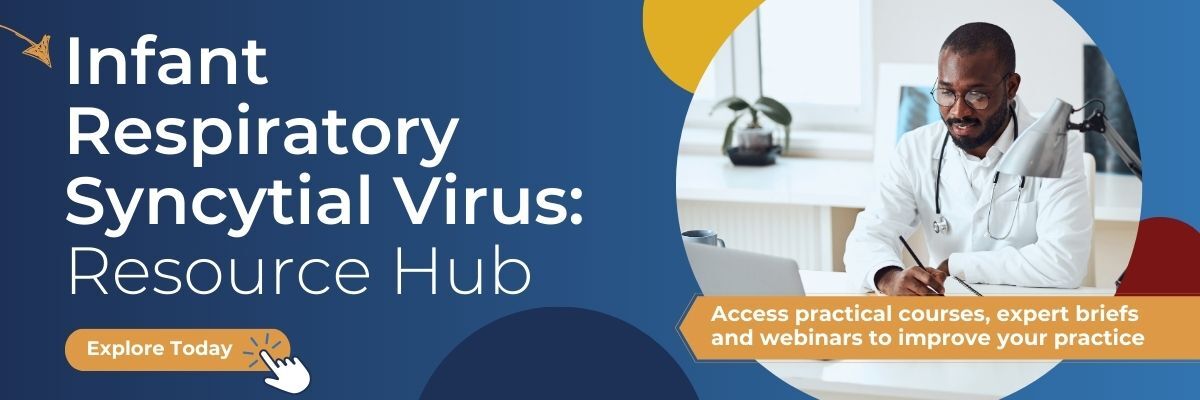Infectious Disease, Respirology
Optimizing RSV Protection for All Infants
This is a 60-minute eCME for Canadian HCPs. Due to the significant burden of disease of RSV in infants and young children, the goal is to provide education on the role of RSV immunoprophylaxis in disease prevention. This program is designed to provide practical information on recently authorized RSV immunoprophylaxis available in Canada, with a focus on nirsevimab, a long-acting monoclonal antibody. Utilizing case studies and expert videos, the program will review the burden of RSV disease in infants, supporting evidence for recently approved RSV immunoprophylaxis, NACI guidance for RSV immunoprophylaxis for all infants and considerations for the use of nirsevimab in clinical practice.
DURATION
1 hr
PROFESSION
Physician, Nursing, Pharmacy, Allied Health, Medical Resident, Student, Specialist
# OF CREDITS
0
ACCREDITATION
Unaccredited
EXPIRY DATE
2025-08-12
Respiratory syncytial virus (RSV) is one of the most common respiratory viruses in infants and young children, infecting almost all children by two years of age. RSV accounts for a significant burden of disease in infants and young children, causing serious complications for infants, including hospitalization, as well as significant impact on caregivers and families. Although the risk of severe RSV disease is higher in infants with certain medical conditions including prematurity, full-term infants account for the highest proportion of infants with severe RSV disease. In order to address this substantial disease burden, NACI has recently issued new guidance for RSV immunoprophylaxis for all infants with a focus on the use of nirsevimab to prevent severe RSV disease. In 2023, Health Canada authorized two new RSV immunoprophylaxis: nirsevimab, a long-acting monoclonal antibody, and RSVpreF, a maternal vaccine. NACI guidelines state that nirsevimab is currently preferred over RSVpreF due to its higher efficacy and possible longer duration of protection.
This program has received an unrestricted educational grant or in-kind support from Sanofi.
Faculty
- Marc Lebel, MD, FRCPC
- Christine Palmay, HBArtSci, MD, CCFP, FCFP
- Erin Fleischer, RN (EC) NP Paeds, BSCN, MN, ACNP
- Ronik Kanani, MD
Learning objectives
Upon completion of this continuing education program participants will be better able to:
- Cite the prevalence and burden of RSV disease in infants
- Evaluate clinical and safety data of recently approved RSV immunoprophylaxis for infants
- Summarize NACI guidance on RSV immunoprophylaxis for all infants
- Implement RSV immunoprophylaxis for infants in clinical practice
Accreditation
This program is unaccredited.


